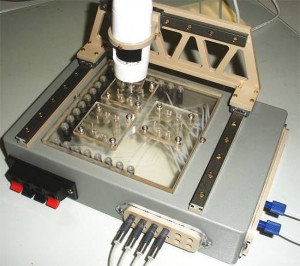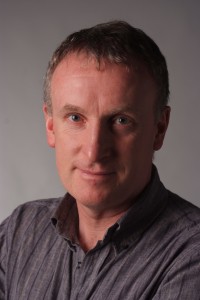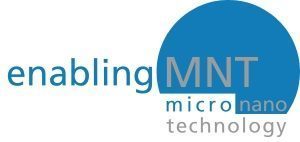The advancing fields of Microfluidics and Micro-Electromechanical-Systems (MEMS) are revolutionising our ability to rapidly analyse chemical and biological specimens with small, inexpensive and portable devices that will make a significant impact in the fields of healthcare, the environment and security. Our three-day course on MEMS and MICROFLUIDICS provides an introduction to the principles on which these devices are based and the technologies that come together in their design and manufacture. Participants of the course will also experience a number of hands-on experiments that demonstrate some of the basic processes that take place in a microfluidic device.
What You Will Learn
- An understanding of the technologies and assembly solutions needed for specific classes of functions.
- An understanding of the underpinning engineering science associated with microfluidics.
- An understanding of the structure of a diversity of sensors and actuators used in BioMEMS and fluidic systems.
- The ability to use hand calculation and computer based simulations to design a range of micro structures with the desired fluidic functionality.
- An understanding of the technologies available to support integration with silicon electronics, sensors and photonics.
Who Should Attend
Aimed at primarily Electronic Engineers. but also very useful for biologists and chemists who are looking for an introduction to MEMS and microfluidic technologies. The course will provide an introduction to MEMS and microfluidics in the context of the imminent expansion of System-on-Chip and System-in-Package technologies which enable the creation of miniature devices that integrate transducers electronic signal processing.
Prerequisite
Participants should have a basic background in Electronic Engineering and an understanding of semiconductor technologies.
Course Methodology
This course is presented in an interactive classroom style utilizing lecture, open discussion, and examples.
Course Duration 3 days or 1 day extended tutorial.
Course Structure
DAY 1:
Microfluidic Processes:
- Introduction and course outline
- Intro to MEMS and microfluidics
- Basic microfluidic Processes and Theory
- Lab Introduction
- Lab exercises: microfluidic Mixing
Day 2
Integration Technologies:
- Sensors and Actuators
- Manufacturing Processes
- Interconnection, packaging and integration
- LabView based systems
- Lab exercises: microfluidic Separation
Day 3
Design & Application:
- Modelling and Design
- Applications for MEMS/ microfluidics
- Lab exercises: Droplet generation
Lab Sessions
The lab sessions provide a hands-on demonstration of three basic microfluidic processes;
mixing, separation and droplet generation. The microfluidic devices used for these experiments
are produced by Epigem, a leader in polymer based micro-engineering, and allow participants
to observe the processes and interactions as they take place using a Labview™ based PC control system.

Instructor Profile

Professor Andrew Richardson holds a personal chair at Lancaster University in Microsystems Engineering. He is a specialist in Design for Test and Reliability Engineering. Professor Richardson’s research background has been based firmly around advanced test methods for state of the art chips and included work on defect oriented testing, especially IDDQ, Self-Test with a focus on Converters and PLL’s and on-line test strategies. This research portfolio has been delivered with industrial partners from the European Union including AMI Semiconductors, ST Microelectronics, Philips, NXP and Dolphin Integration. Between 2004 and 2010 this portfolio was integrated into a new European Network of Excellence in Design for Manufacture Technology for Micro & Nano based systems that involved 24 partners across Europe. Prof. Richardson coordinated this venture that aimed to extend Design for Test Engineering to emerging technologies and deliver on-line as well as off-line test strategies.
Prof. Richardson has delivered both conventional and distance learning professional courses in the area of design for testability through ISLI, Livingston and Europractice as well as a number of private industrial clients including NOKIA, Wolfson Microelectronics and NMI and in Process Awareness and IDDQ test through what was previously Philips Semiconductors.
Prof. Richardson contributes actively to international dissemination events including work on the steering committee of the IEEE International Mixed Signals, Systems & Sensors Test Workshop, (http://cadlab.ece.ucsb.edu/IMS3TW2011/) (chairman in 2006) and program committees for the European Test Symposium (http://www.ieee-ets.org/) and Design, Test Integration and Packaging – DTIP (http://cmp.imag.fr/conferences/dtip/dtip2011/) as well as the European Workshop on Microelectronics Education (EWME). Prof. Richardson was also guest editor on special issues in mixed signal test in 2007 for both the Springer Journal in Electronic Test Technology and Applications and the Elsevier Microelectronics Journal.
Professor Richardson is also now the Managing Director of enablingMNT, UK that is part of the enablingMNT group with partner offices located in Holland and Germany. Besides test engineering and education, Prof. Richardson counts among his interests: mountaineering, skiing and playing the guitar.
